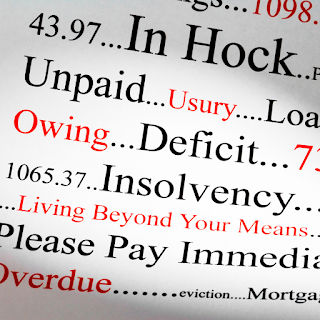It's Sunday afternoon. Many of us are preparing to go back to work tomorrow. If you are looking forward to it...if you are heading into the office tomorrow because you want to...
Congratulations! You are in control of your life, your money, your dream.
But if you are already dreading tomorrow, feeling depressed and irritable because you have no choice but to go to work tomorrow, then your need for money controls the rest of your life. And that is NO FUN!
But don't feel bad. You are in good(?) company. Most of the people in the world are controlled by the need to make a living.
Unfortunately, that need is also what causes most people to remain tied to a job they hate for their entire working life. I mean, let's be real. It takes money to make money, right? And besides, after working all day and then taking care of family...who has time to do anything to make more money? We didn't go to college. We don't have fancy degrees. How are we supposed to earn enough to get rich?
Time to change that thinking! As long as you are content to trade time for money, you will never be rich. Even folks with advanced degrees often trade time for money. Sure they can charge more for that time. And they may make enough that you consider them rich. But I'm talking about being OBNOXIOUSLY rich! And if you don't think that's possible for you, you're wrong. But what's even more important...if you can change your thinking, you can create the type of income most really rich people do. Instead of trading time for money, they trade ideas for money. They solve problems. They help others. Trust me. The world will beat a path to your door, credit cards in hand, if you can solve their problems.
I'm now hearing the chorus of despair. "But I don't know anything. How can I solve other people's problems?"
You don't have to recreate the wheel. The world is full of product and services that solve people's problems. Do you know people who are struggling to lose weight? There are products for that. Do you know folks who are unhappy with how they look? There are a myriad of cosmetics and skin care products that will help. I don't care what someone is struggling with, there are probably products out there to address it.
How does that help you? Two of my main income streams are network marketing and affiliate marketing. When you are a network marketer, you make a small investment to join a company as a representative for their products. In exchange for that investment, these companies usually provide you with training, marketing tools, and a commission for every product you sell. You can also recruit other reps and get paid on a portion of their sales. Yes, it does take an investment. But if you join a legit company and a good team, the support and training you receive will make the investment worthwhile.
In affiliate marketing, you also promote others' products for a commission. There is generally no investment required to become an affiliate for a particular product. But there is also very little support. Companies may give you some marketing blurbs or banners ads and such. But usually there is no training. There aren't any teams to support you. You are strictly on your own.
Can you get rich with network marketing and affiliate marketing. I'll be honest. Some do. Most don't. But what they can do that's priceless is this. They are often the first step to changing that time for money mindset. And as you learn marketing skills and how to network, as you meet people and build relationships, they are often the bridge to starting a business that is truly yours. If you had told me when I started over 40 years ago that one day I would be a best-selling author with multiple income streams, I would have said you were crazy. But here I am. All because of what I learned and who I met in the network marketing and affiliate marketing industries.
The biggest determining factor isn't what vehicle you use...network marketing, affiliate marketing or something else. The thing that will make all the difference is your mindset. If you truly believe in your heart that the only way to make money is to trade your time for money, you are limited. There are only so many hours available to you in a day. But if you grasp the concept of trading IDEAS for money, you can work a couple of hours a day and make literally thousands of dollars, once you learn the skills.
If you want to become wealthier, whatever that means for you, begin by working on changing your mindset. Sometimes that means you have to work on your self-image. If you read my post What My Parents Taught Me About Money, then you know I was raised to believe that people like me can't get rich. It took me many years to get past that limiting belief.
If your self-image is good, but you feel you lack skills, then the answer to that is to learn! Join my email list and I'll teach you everything you need to know.
Time for you to take action. If you need some mindset work, then do it! Change what you read. Change what you listen to. Change who you run with. Surround yourself with people who do what you want to do. Read what they read. Read what they write. Listen to their podcasts. You may find yourself leaving your old circle behind. But sometimes you have to let go of the past to move into the future.
If you are ready to learn how to trade ideas for money, you already know what to do. Hop on my list. I promise I'll be here for you. I love my list. I'll take good care of you.












